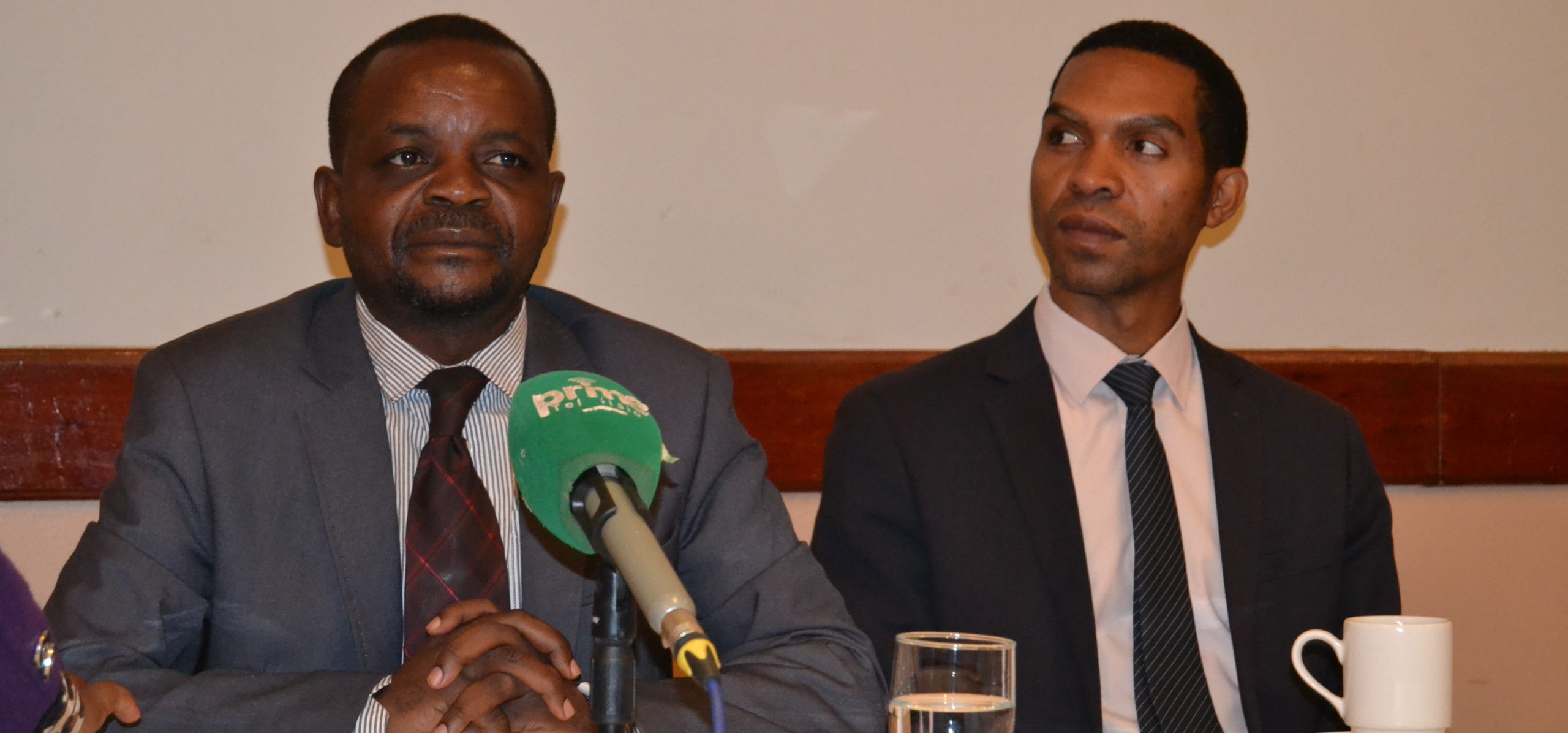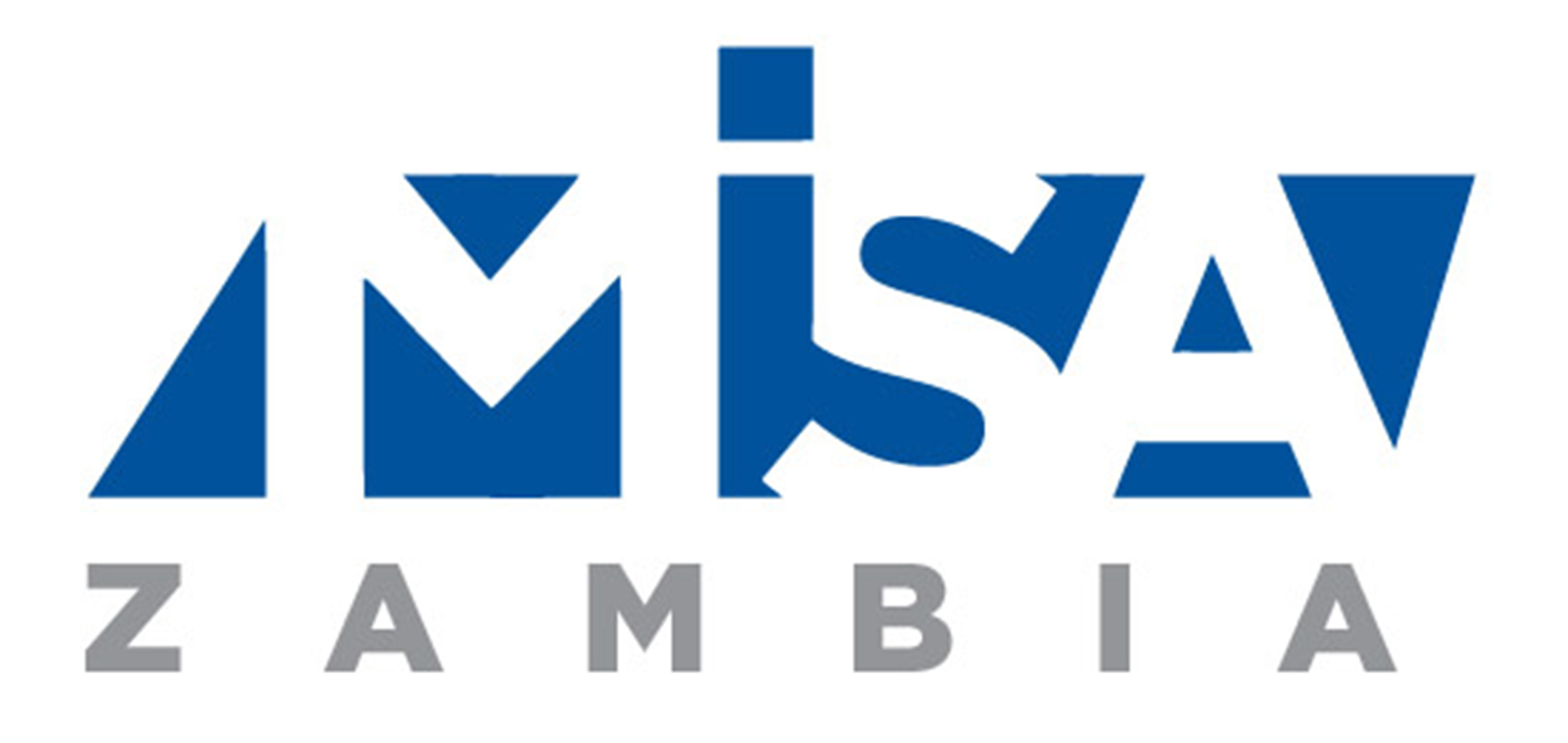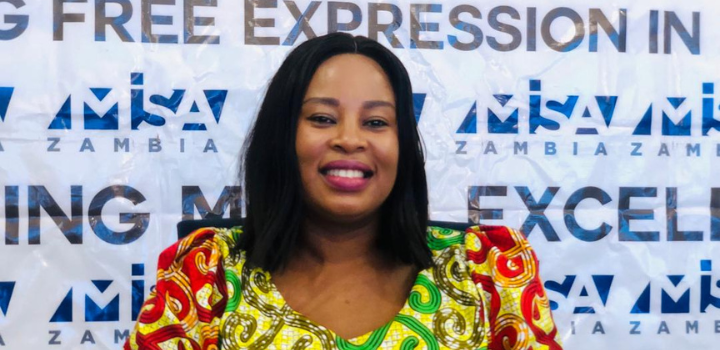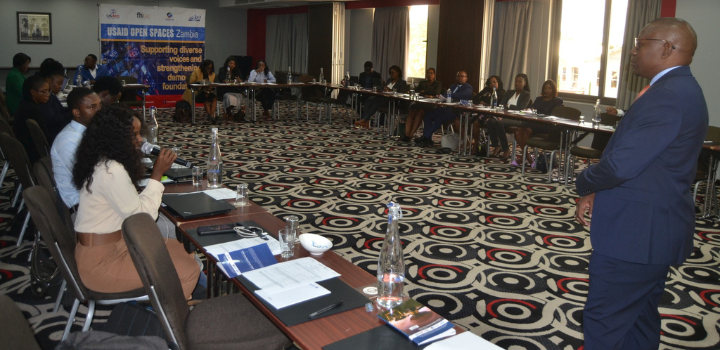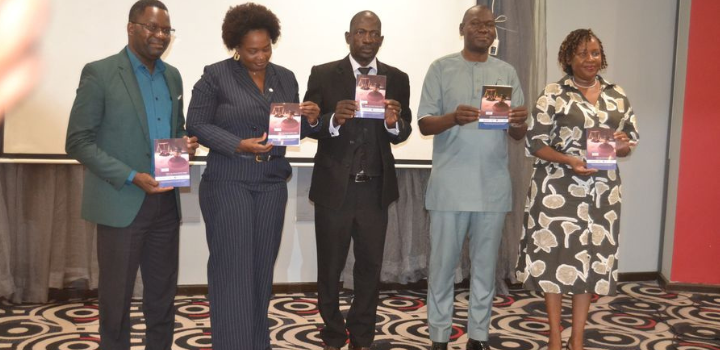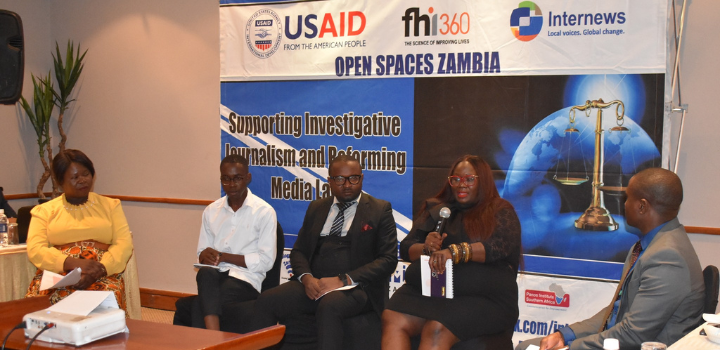ZCSD Executive Director Lewis Mwape (L) and CSPR Executive Director Kryticous Nshindano
A collective movement of Civil Society Organisations CSOs has called on government to embrace a consultative and transparent approach before the enactment of cyber laws.
Speaking during a joint media briefing in Lusaka, movement representative Lewis Mwape who is Zambia Council for Social Development (ZCSD) Executive director explains that the process of enacting the proposed cyber laws that restrict the civic and democratic online space must be halted to allow for a wider consultation with all stakeholders.
Mr. Mwape has since called for citizens to petition their Members of Parliament and Cabinet Ministers to open the space for open stakeholder consultation on the proposed cyber laws and prioritise the wish of the people to freely assemble and participate in democratic processes and conversations of their communities through the online space.
Below is the full Statement!
Zambia Civil Society Press Statement on Proposed Regulation of Online Spaces
Lusaka, 5th June, 2018
Distinguished Members of the Press, invited Guests, Ladies and Gentlemen
Zambia’s democracy, civil liberties and freedoms as seen in the freedom of expression, association, assembly, right to share and receive information and right to hold to account its elected leadership is under threat.
Open spaces for civic and democratic online platforms and their associated rights are in rapid decline in Zambia and are speedily shrinking.
Although Article 20 of the Universal Declaration of Human Rights provides for the right to peaceful assembly and association, these rights have continued to experience, renewed or sustained restrictions. In its 2016 report, State of Civil Society, CIVICUS notes that for countries like Zambia, public order laws are increasingly being used to restrict and decline the space limiting the right to expression, association and peaceful assembly – the three fundamental rights on which civil society’s ability to act rests.
Furthermore, the 2015 Freedom on the Net Report by Freedom House underlines that online freedom including free speech has generally been in decline and Zambia is no exception.
This freedom includes the freedom to hold opinions without interference, and to seek, receive and impart information and ideas through any media regardless of frontiers. In Zambia, the challenges contributing to the shrinkage of the civic space include the NGO Act, the Public Order Act and new laws proposed to regulate social media activities.
While civil society organisations in Zambia recognise the importance of the need to address online harassment, identity and data theft, local organisations demand that these should not hinder or further diminish freedoms of expression, association and peaceful assembly.
The Minister of Transport and Communications, Mr. Brian Mushimba and state agencies like the Zambia Information, Communication and Technology Authority ZICTA, Zambia Police among others have in the past few months implied that Zambia was considering tabling before Parliament a Cyber Bill. This cyber bill is aimed at regulating citizen’s online interaction on social media platforms such as Facebook, WhatsApp, twitter, among others.
We, the CSOs gathered here in Lusaka today, have noted the following that:
- The obscure and closed process to develop these bills is anti-democracy and anti-civil liberties;
- These bills are not demand driven as Zambians have been demanding that more pressing bills such as Access to Information since 2002, Public Finance Management, Budget and Planning and Electoral legislations and reforms must be enacted first. These are what have been demanded by the citizens of this great nation.
As a collective movement of the Faith Based, CSOs, Media Actors; we note;
- That article 20 of the Zambian Constitution guarantees the sharing and receiving of information without interference, whether public or private and any law that seeks to hinder or subvert this right will be going against the Constitution of Zambia.
- That Zambia currently has enough laws to deal with cyber-crimes and misdemeanours. The current laws in the Penal Code, the Computer Crimes and Misuse Act and the Copyright and Performance Rights Acts and the acts of private companies in protecting their privacy and data banks are enough to stop any cyber-crime from being planned and committed in Zambia. We also believe that the existing pieces of legislation on slander, libel, publication of false information including the defamation of the President currently governing the traditional media environment are sufficient to control and professionalise social media interactions and citizen journalism; what Zambia needs is the strengthening and democratisation of these laws to allow for the safe guarding of online democratic spaces.
- That Zambia state institutions with a mandate to protect citizens and democracy such as Zambia Police Anti-Corruption Commission ACC, ZICTA and the Public Protector currently have inadequate financial and human resources to undertake their duties. These institutions should be empowered to do their job.
- That the process of enacting cyber laws that restrict the civic and democratic online space be halted to allow for wider consultation with all stakeholders. There has not been transparency and consultation in the designing of these proposed bills and we believe the laid down procedure in law development of a consultative process was not followed. Therefore, government should release the draft cyber bill before it goes to Parliament and allow for further debates among citizens so we are all agreed on what ills this bill is expected to solve.
- That any proposed cyber law should ensure the security and protection of an ordinary citizen’s enjoyment of online democratic space and that the corporate world does not abuse the data and information provided by citizens in the course of their online activity. The proposed new laws will hinder sharing of online resources and information which has helped many small scale farmers, rural women and school children, who cannot afford the latest books and news sources, to have access to latest information in their areas of interest.
- The legislation also risks hindering poor and marginalised communities from accessing up to the minute news of the happenings outside their villages and communities, or to network with like-minded people and interests in the global village through social online networks.
- The proposed bills will also discourage community members from using social media and ICTs to engage with government leaders on the positive and negative effects of some policies, which engagements have led to the improvement of social service delivery and social accountability. The laws will also hinder health workers in rural areas from using telemedicine facilities to link up with specialists from within Zambian hospitals and hospitals abroad.
- That the sponsors of these bills in government must embrace a consultative and transparent approach that enhances democracy and human rights, and does not take away the few civil liberties that we have been left with.
We call on all citizens their local Member of Parliament, and cabinet ministers to open the space for open stakeholder consultation on this issue and prioritise the wish of the people to freely assemble and participate in democratic processes and conversations of their communities through online space.
We call on the government to open the space for stakeholders to input into the cyber laws prior to their being tabled in Parliament given the impact that they will have on millions of internet users. Lastly, we call on the government to prioritise educating the masses on internet use.
Open the space for dialogue, protecting freedom of expression!
Thank You
Signed: Lewis Mwape,
ZCSD Executive Director
On Behalf of:
MISA – Zambia
Bloggers of Zambia




